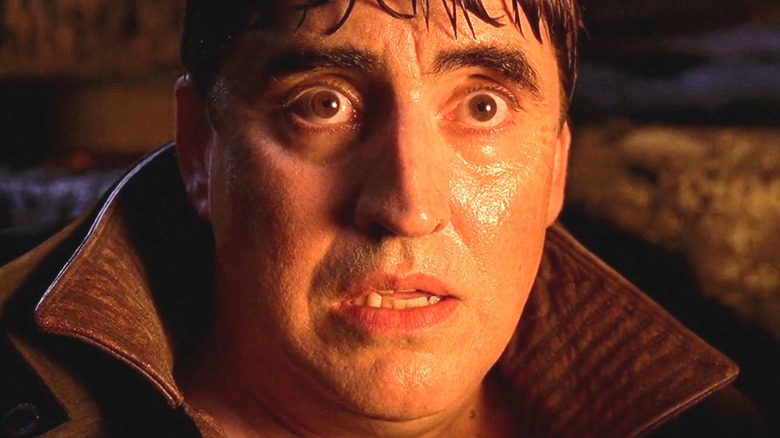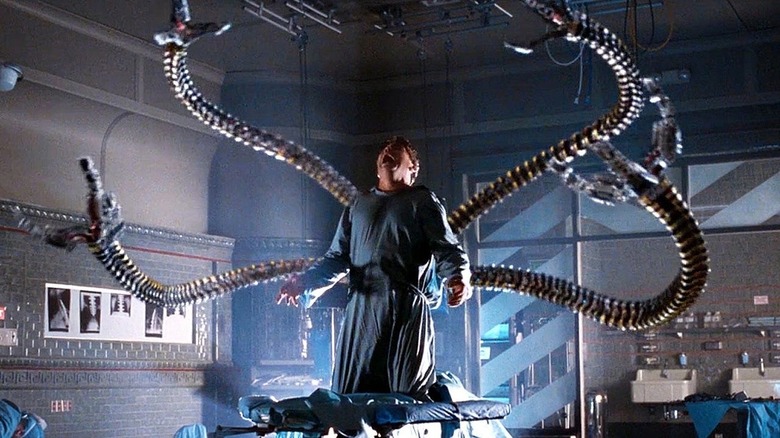Doc Ock's Powers In Spider-Man: No Way Home Explained
Contains spoilers for "Spider-Man: No Way Home"
"Spider-Man: No Way Home" takes care to feature at least one villain from every pre-MCU "Spider-Man" movie, which is exactly as great as it sounds. However, this means that the movie has five major villains, and even though you might already be familiar with them from their lengthier appearances in past films, the first of said movies was made in 2002. Although "Far from Home" does a commendable job at reminding you about the basic nature and motivations of every major player, this means that unless you have almost two decades of Spider-movies memorized, you might have a hard time keeping track to them all.
One of the most prominent and scene-stealing members of Spider-Man's live-action rogues gallery is Dr. Otto Octavius (Alfred Molina), the main antagonist of the much-loved "Spider-Man 2." Doc Ock is the first old-school baddie to make a return in "Spider-Man: No Way Home," and along with Willem Dafoe's Norman Osborn, the most prominent. Much is made about the tragic villain's bad temper, AI tentacles, and the failure of the control chip that allows the man to control the metal. However, the movie pretty much trusts you to remember how this middle-aged, regular-looking dude ended up with the tentacles in the first place, and how he can go toe-to-toe with Spider-Man (Tom Holland) — a superhero who's able to beat Doctor Strange (Benedict Cumberbatch) himself. With that in mind, let's take a moment to explain Doc Ock's powers in "Spider-Man: No Way Home."
The tentacles are calling the shots
The version of Doc Ock you see in "Spider-Man: No Way Home" is ultimately pretty easy to defeat once Spider-Man (Tom Holland) figures out a way to override the tentacles with his Stark nanotech. But, before that hack comes in play, the villain is a borderline invincible threat who handily beats the hero. So, how did he become so dangerous in the first place?
In "Spider-Man 2," Dr. Octavius is a perfectly pleasant nuclear scientist before things go awry. He develops the artificial intelligence tentacle harness in order to help him to accurately and safely manipulate the dangerous materials he needs in his fusion power project, which explains their sturdiness and dexterity. Unfortunately, he needs to use an inhibitor chip to keep this sophisticated piece of tech from tampering with his nervous system. When said chip gets wrecked in an accident and the harness becomes permanently fused with him, the AI of the tentacles effectively takes him over and overwrites his personality, communicating with Octavius via disembodied voices in his head. The tentacles can operate even when Doc Ock is unconscious or focused on something completely different, because they quite literally have a mind of their own, and can use their own built-in cameras to observe the environment. As such, it's virtually impossible to catch the villain off his guard, even if he has to fight multiple people at once.
As such, the grouchy, villainous version of Doc Ock you see is ultimately just a fleshy, tortured mouthpiece for the sentient AI tentacle harness system that acts as an independent extension of his body, both protecting and controlling him. No wonder the guy is so eager to help the Spider-Men after his inhibitor chip is finally restored.

